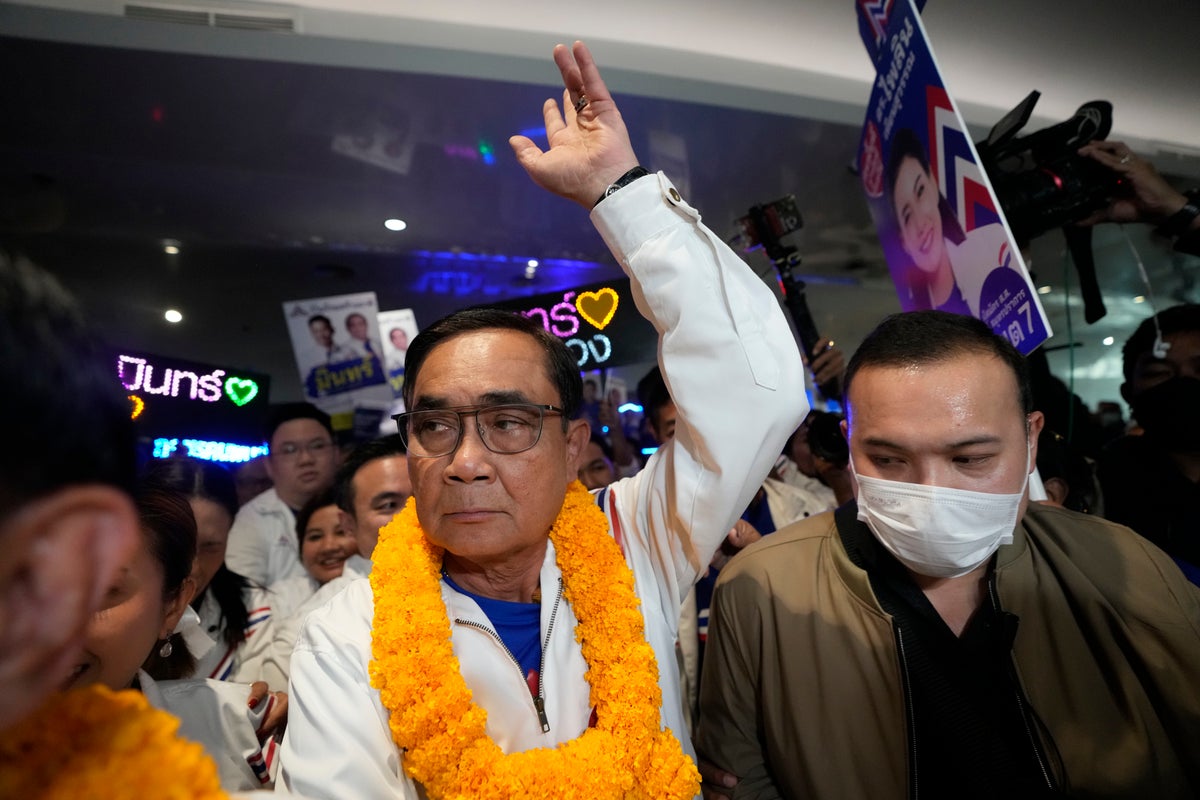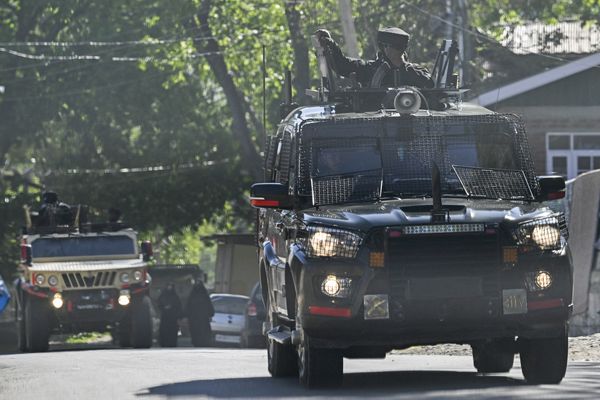
Voters disaffected by nine years of plodding rule by a coup-making army general are expected to deliver a strong mandate for change in Thailand's general election Sunday. But a predicted victory by the allies of Thaksin Shinawatra, whose ouster by coup 17 years ago plunged the country into prolonged instability, has caused concern for an unhindered democratic transition.
Dissatisfaction with the incumbent prime minister running for reelection, Prayuth Chan-ocha, is high, due in part to a slumping economy and his government’s mismanaged response to the COVID-19 pandemic.
But weariness and even anger at the military’s habitual interference in politics is a major factor. Thailand has had more than a dozen coups since becoming a constitutional monarchy in 1932, the last one in 2014 carried out by Prayuth when he was army commander. Prayuth’s governments slapped down democratic reforms and prosecuted activists.
“The main factor could be that people are no longer willing to tolerate the authoritarian government that has been in power for over nine years, and there is a significant wish for change among the people.” said Pinkaew Laungaramsri, a professor of anthropology at Chiang Mai University.
Seventy political parties are contesting the 500 seats up for grabs in the House of Representatives: 400 are directly elected, with 100 chosen via a form of proportional representation.
Opposition parties endorsing reforms to rein in the army are running strides ahead in opinion polls. But pitching policies that threaten the status quo alarms the ruling conservative establishment. It has repeatedly shown itself capable of bringing down popularly elected governments it didn’t like, through rulings in the royalist courts and army coups.
Prayuth represents one pole of the country’s politics, centered around royalists and the military. Thaksin, the billionaire populist ousted in the 2006 coup, represents the other. The power struggle between Thaksin’s supporters and his opponents has been fought — sometimes in the street, sometimes at the ballot box — for almost two decades.
Prayuth is trailing badly in opinion polls behind Thaksin’s 36-year-old daughter, Paetongtarn Shinawatra, who inherited the popularity and political style of her father. She campaigned intensively while heavily pregnant and gave birth to a son last week.
She is the favorite among the opposition Pheu Thai Party's three registered nominees for prime minister. Her party looks set to win a majority of seats in the lower house of Parliament.
Recent history strengthens the appearance of this election as a grudge match between the Shinawatras and their foes. Prayuth’s 2014 coup unseated a government that had come to power with Yingluck Shinawatra — Paetongtarn’s aunt, Thaksin’s sister — as prime minister. And Pheu Thai topped the field in the 2019 vote, only to be denied power when the army-backed Palang Pracharath Party found partners to assemble a coalition government.
But a third major player has injected a sharp ideological aspect into the election. The Move Forward Party, led by 42-year-old businessman Pita Limjaroenrat, has galvanized younger voters and is running a strong second to Pheu Thai in the polls. However, for conservative Thailand, its platform is frighteningly radical: reform of the military and reform of the powerful monarchy, a bold move because the institution has been traditionally treated as sacrosanct.
Thitinan Pongsudhirak, a professor at Bangkok’s Chulalongkorn University, points out that while Move Forward’s agenda would be considered just “progressive” in other countries, in the Thai context it is “revolutionary.”
“This election is the most important in contemporary Thai politics because it’s an election that’s going to determine Thailand’s political future,” he says, crediting Move Forward with “pushing the frontiers of Thai politics into areas where it needs to go.”
Pheu Thai largely shares Move Forward’s reformist agenda, but the smaller party’s more forthright stand poses a dilemma. Adding Move Forward to a coalition government could antagonize the Senate, a conservative body whose support is crucial to taking power.
Thailand’s 2017 constitution, adopted under military rule, calls for the prime minister to be selected by a joint vote of the 500-member House and the unelected 250-seat Senate, whose members were appointed by Prayuth’s junta.
In 2019, the Senate voted as a bloc, unanimously backing Prayuth. This time, a party that wins a clear majority of House seats still might need at least 376, or 75% plus one, of the votes in the 500-member lower house if its prime minister candidate was opposed in the Senate.
If Pheu Thai lands in such a position, it could find coalition partners among parties that win some House seats. It could also nominate one of its other candidates for prime minister, most likely 60-year-old Srettha Thavisin, who is not burdened with the Shinawatra name that is anathema to the Senate’s conservatives.
Most intriguingly, Pheu Thai could ally with another former general, 77-year-old Prawit Wongsuwan, who has been Prayuth’s ambitious deputy prime minister and is this year’s prime minister candidate for the Palang Pracharath Party.
He and his party are polling badly, but his presence in government might reassure some senators. Such an alliance would seem like a deviance from Pheu Thai’s platform, but could be sold to supporters on the basis that Prawit was not actively involved in plotting the 2014 coup.
Until Sunday’s votes are counted, Pheu Thai’s path forward will remain unclear.
“Many said that this election reflects the people’s hope for change in politics, but at the same time, the greater the hope for change imposed on this election, the more nervous the conservatives currently holding power become,” says Chiang Mai University’s Pinkaew. “We will begin to see the retaliation from the conservative side, from provoking a sense of extreme nationalism to obstructing some parties."







